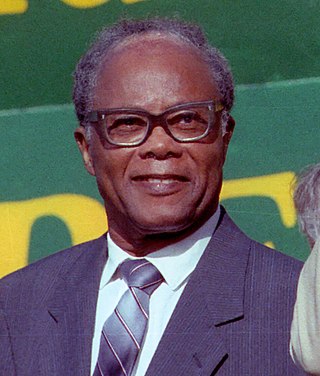The history of Grenada in the Caribbean, part of the Lesser Antilles group of islands, covers a period from the earliest human settlements to the establishment of the contemporary nationstate of Grenada. First settled by indigenous peoples, Grenada by the time of European contact was inhabited by the Caribs. British colonists killed most of the Caribs on the island and established plantations on the island, eventually importing African slaves to work on the sugar plantations.
The politics of Grenada takes place in a framework of a parliamentary representative democracy, whereby the prime minister is the head of government. Grenada is an independent Commonwealth realm. It is governed under a multi-party parliamentary system whose political and legal traditions closely follow those of the United Kingdom; it has a prime minister and a cabinet, and a bicameral Parliament with an elected House of Representatives and an appointed Senate. Executive power is exercised by the government. Legislative power is vested in both the government and parliament. Constitutional safeguards include freedom of speech, press, worship, motion, and association. Grenada is a member of the eastern Caribbean court system. The Judiciary is independent of the executive and the legislature. Jurisprudence is based on English common law.

Keith Claudius Mitchell is a Grenadian politician who served as Prime Minister of Grenada from 1995 to 2008 and from 2013 to 2022. He is the longest-serving Prime Minister in Grenadian history, holding the office for more than 22 years. He was leader of the New National Party (NNP) from 1989 until 2024 and has been the Leader of the Opposition in the House of Representatives of Grenada from 2008 to 2013, and again since 2022.

Sir Vere Cornwall Bird, KNH was the first Prime Minister of Antigua and Barbuda. His son, Lester Bryant Bird, succeeded him as prime minister. In 1994, he was declared a "National Hero".

The New National Party (NNP), also known as NNP Grenada, Carriacou and Petite Martinique, is a conservative political party in Grenada. It is led by Emmalin Pierre.

Sir Eric Matthew Gairy PC was the first Prime Minister of Grenada, serving from his country's independence in 1974 until his overthrow in a coup by Maurice Bishop in 1979. Gairy also served as head of government in pre-independence Grenada as Chief Minister from 1961 to 1962 and as Premier from 1967 to 1974.

Herbert Augustus Blaize PC was a Grenadian politician and leader of the Grenada National Party. When Grenada was still a British Crown Colony he served as the first Chief Minister from 1960 to 1961, and again from 1962 to 1967. He became the first Premier of the autonomous Associated State of Grenada briefly in 1967. In the first elections following the 1983 coups and the American-led invasion of Grenada, he served as Prime Minister from 1984 until his death in 1989.

The People's Revolutionary Government (PRG) was proclaimed on 13 March 1979 after the Marxist–Leninist New Jewel Movement overthrew the government of Grenada in a revolution, making Grenada the only socialist state within the Commonwealth. In Grenada, the revolution is referred to as the March 13th Revolution of 1979 or simply as “The Revolution”. The government suspended the constitution and ruled by decree until a factional conflict broke out, culminating in an invasion by the United States on 25 October 1983.

Grenada is an island country of the West Indies in the eastern Caribbean Sea. The southernmost of the Windward Islands, Grenada is directly south of Saint Vincent and the Grenadines and about 100 miles (160 km) north of Trinidad and the South American mainland.

The Constitution of Guyana is the highest governing document in the Republic of Guyana. It came into effect on October 6, 1980, replacing the constitution enacted in 1966 upon its independence from the United Kingdom. The current Constitution of Guyana contains 12 chapters that are further divided into 232 articles. It also contains a preamble and an oath. Since its 1980 enactment, it has gone through multiple amendments.
The Grenada National Party (GNP) was a conservative and economically liberal political party in Grenada that existed from 1954 to 1984, when it merged into the New National Party. It alternated in power with the Grenada United Labour Party (GULP).

The Grenada United Labour Party (GULP) is a political party in Grenada.

General elections were held in Grenada on 10 October 1951. They were the first held with universal suffrage. Eric Gairy's Grenada Mental and Manual Workers Union won six of the eight seats. However, at this time the Legislative Council had few powers and the role of head of government remained with the Administrator.

General elections were held in Grenada on 20 September 1954. Although independent candidates received the most votes, Eric Gairy's Grenada United Labour Party won six of the eight seats, as it had done in the 1951 elections. At this time the Legislative Council had few powers. The role of head of government remained with the Administrator.

General elections were held in Grenada on 24 September 1957. Following the introduction of the new Constitution on 21 December 1959 real authority for governing the country was given to a Chief Minister and those from the majority party in the Legislative Council based on the 1957 elections. Herbert Blaize was appointed the first Chief Minister from 1 January 1960 when the Legislative Council provisions took effect, with the cooperation of the independents who chose to support the Grenada National Party.

General elections were held in Grenada on 13 September 1962. Herbert Blaize's Grenada National Party won six of the ten elected seats and Blaize was appointed Chief Minister for the second time. Blaize served as Head of Government until the next general election in August 1967, initially as Chief Minister until March 1967, and subsequently when Grenada became a fully internally autonomous Associated State, as Grenada's first Premier. Voter turnout was 73%.
The National Party (TNP) was a political party in Grenada.
Sir John Augustus Fitzroy Watts KCMG CBE was a Grenadian dentist, politician and co-founder of the Grenada National Party.
George Elliot Dunbar Clyne was Chief Minister of Grenada from March 1961 to August 1961. He became the chief minister following GULP election victory and stepped down when the political ban of Eric Gairy was lifted.
Cynthia Gairy was a Grenadan politician. She was the first woman to serve in the Parliament of Grenada and the Cabinet of Grenada. She was the husband of the first Prime Minister of Grenada, Eric Gairy.










